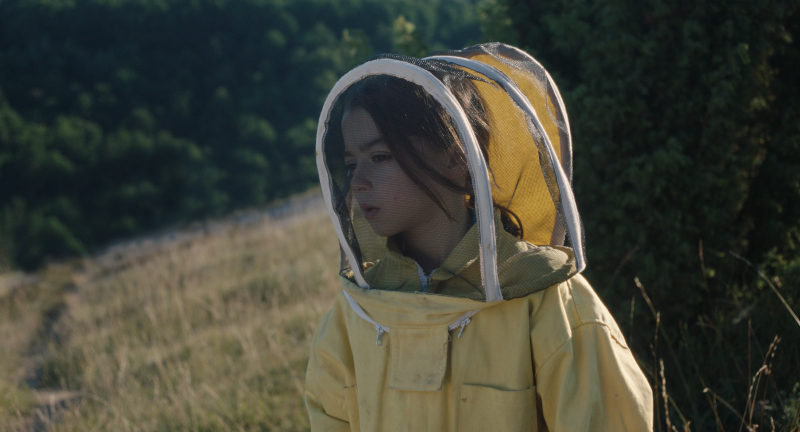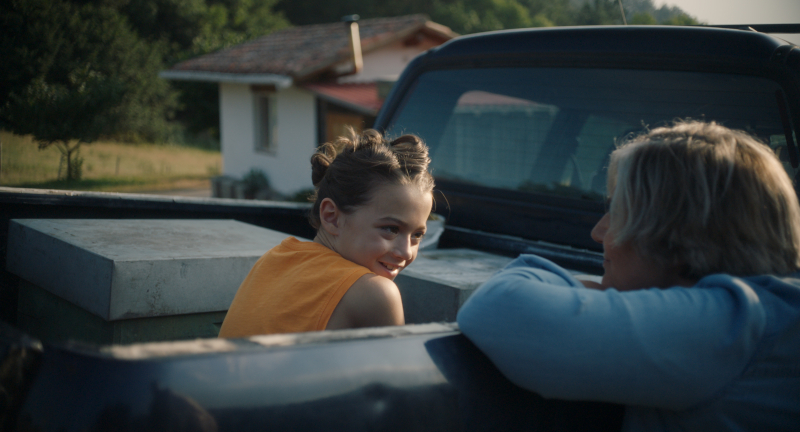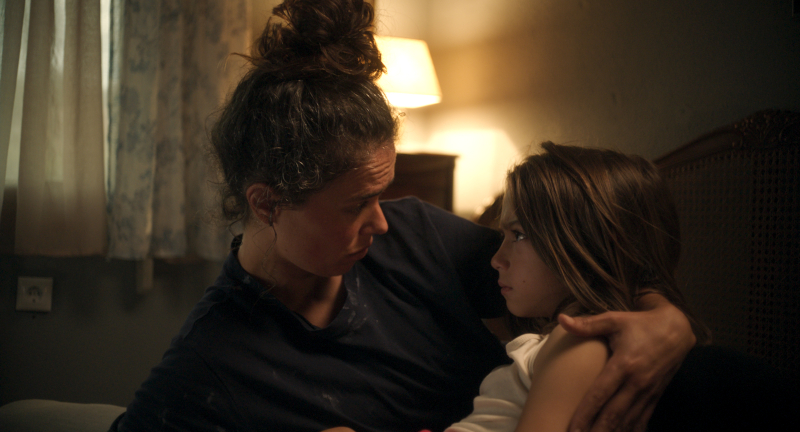Director – Estibaliz Urresola Solaguren – 2023 – Spain – Cert. 12a –128m
**
An eight-year-old assigned male at birth struggles with their gender identity while mum struggles with her artistic identity as a sculptress – plays the 2023 London Film Festival which runs from Wednesday, October 4th until Sunday, October 15th, and will be out in UK cinemas on Friday, October 27th
This is one of those films that’s picked up lots of prizes at various international film festivals, which means that lots of people rated some aspect of the film highly or possibly that it was the best of a bad lot (although if a film wins awards over a number of festivals, that latter scenario is less likely).
I didn’t know any of that going in, and I didn’t like the film very much coming out – I found it difficult to follow who was who, a problem scarcely helped by the fact that one of the main characters is initially called by one name, then by a nickname they don’t like very much, then finally by the name by which they wish to be known. The film credits the eight-year-old character played by Sofia Otero as Lucía, but at the start of the film, they are called by their given name Aitor, although the character uses the nickname Cocó.
Aitor / Cocó / Lucía was designated a boy at birth, but increasingly considers themselves female. The child’s mother Ane (Patricia López Arnaiz) is highly supportive, refusing to force the child to accept their designated male gender while trying hard not to stereotype male or female roles with any of her three kids.

It’s apparent from the get go that the two siblings of Aitor / Cocó / Lucía – older sister Nerea (Andere Garabieta Oribe) and slightly older or younger (I have no idea which – if the script or film delivered this info, I must have missed it) brother Eneko (Unax Hayden) are, like most kids, happy in their assigned gender roles. The other’s support of Aitor / Cocó / Lucía has taken its toll on her marriage, with husband Gorka (Martxelo Rubio) thinking that a boy is a boy and that his wife is pampering the child.
Ane and the kids take a train trip to see her sister Leira (Sara Cozar) – whose small son Peiro is due to be baptised in the Catholic church – and their widowed mother, the kids’ grandma. Ane and Leira’s late father was a highly regarded local sculptor who made statues of various Catholic saints as well as a series of ‘sylphides’ (tall young women) based on studies of young, local girls. He had a workshop which his wife is thinking about selling.
There’s a suggestion when Nerea starts asking questions about it that grandpa’s interest in these girls may have been more than merely artistic and that his wife turned a blind eye to all that to preserve their marriage. It also comes out that while grandpa was the artistic one, grandma was the money person who ran his small business as an artist since he hadn’t a clue about business.
Undergoing an identity crisis of her own as her marriage threatens to collapse, Ane is a sculptor like her father, who apparently didn’t think she possessed much talent in that area. Nevertheless, part of the reason for her visit is to put together a portfolio of work to secure a teaching position at an art school.

Grandma’s sister Lourdes (Ane Gabarain) keeps a hive of bees – their stings are useful to get rid of ailments in natural medicine – so there are a lot of scenes with Aitor / Cocó / Lucía hanging out with her learning how to look after bees and beehives. Beeswax also plays a prominent role in the story, since it’s the material that Ane uses to cast sculptures from moulds.
On the one hand, the central character of the piece is eight-year-old Aitor / Cocó / Lucía and her struggles with gender identity, but the film can’t resist going off into its second subplot about the mother, her late father, and her desire to follow in his sculptural footsteps even though she might lack the talent, not to mention a third one about grandma’s sister and beekeeping.
The spectre of Peiro’s baptism looms large for Aitor / Cocó / Lucía as the child has the chance to go dressed as a girl, but in the end can’t go through with it and dresses as a boy. Unable to deal with that decision, the child goes missing and is only found, after much calling for Aitor, when little brother and mother start instead calling for Lucía.
I presume the film’s acclaim is because it ticks the box of telling us that being transgender is tough for kids, which I’m sure is indeed the case. However, in order to get there, its storytelling sense wanders all over the place, it’s characters are poorly differentiated and it doesn’t always supply the necessary information to work out who is who when they appear. (I needed to go back and rewatch the film to work this out, which is never a good sign, and even then it wasn’t easy.) It’s therefore something of an infuriating viewing experience which I wouldn’t personally recommend, even if its heart is in the right place.
20,000 Species Of Bees plays the 2023 London Film Festival which runs from Wednesday, October 4th until Sunday, October 15th, and will be out in cinemas in the UK on Friday, October 27th.
Trailer:
